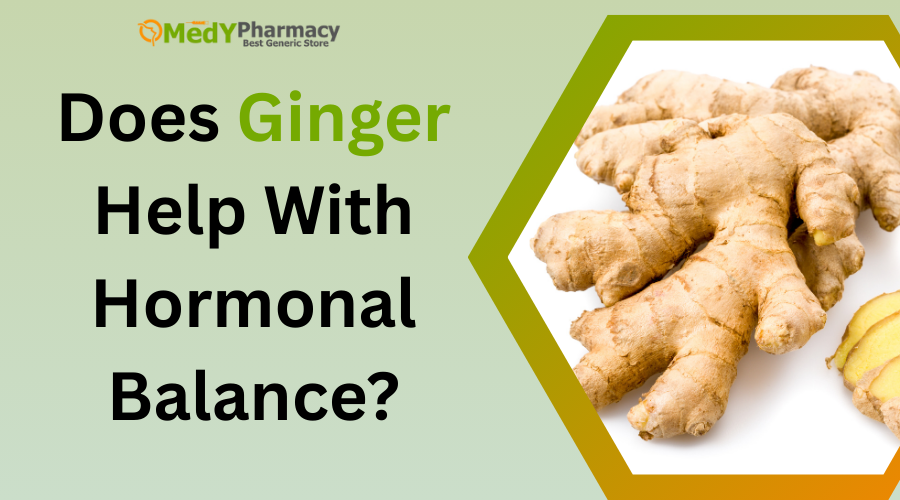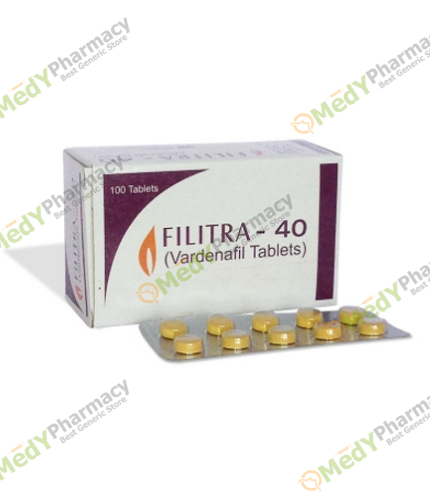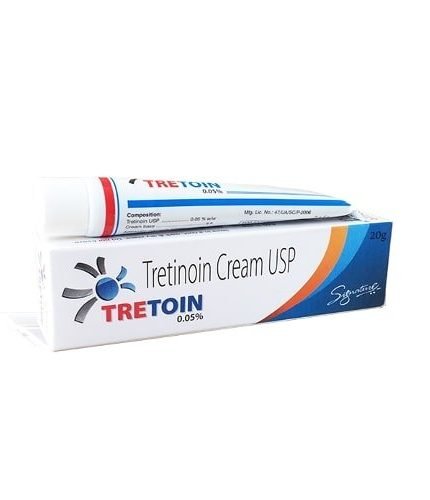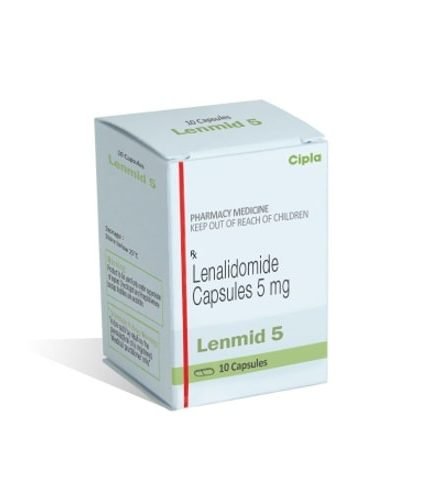Introduction:
Here is a thorough overview of ginger’s health advantages, particularly for women. This warm, tangy beverage is more than just comfort. Rich in powerful chemicals, including shogaol and gingerol, it is a great source of health benefits.
This is a time-tested home treatment that reduces nausea and may help control blood sugar levels, which are a major problem for women with PCOS in particular.
We will explore these and other issues, giving you a better knowledge of ginger’s health benefits. Additionally, we’ll discuss some hazards and safety measures to consider when ingesting ginger.
This guide is for you if you’re suffering from a hormone imbalance or are simply interested in learning more about its health advantages.
Perhaps because of its capacity to lessen acute symptoms like nausea and hot flashes and persistent problems like severe arthritis and bone loss, this herb may not be the first one that comes to mind when you think of cooking to help soothe menopausal symptoms.
What truly captivated me was the fact that it is entirely grown, has no natural counterpart, and has been used for a very long period all over the world.
This can be a beneficial component of a balanced diet and lifestyle, but it is not a remedy for complicated hormonal problems. It works best when combined with medical advice, particularly when treating a particular hormonal issue.
Despite the paucity of data, its anti-inflammatory and antioxidant properties may help people with thyroid issues, which frequently entail hormonal imbalances that impact mood, energy levels, and metabolism.
What Is Ginger?
The most significant of the natural oils it contains is gingerol. This explains a lot of ginger’s therapeutic benefits, such as its anti-inflammatory and antioxidant qualities.
Ginger’s advantages make it a popular ingredient in contemporary health supplements as well as natural therapies.
This is utilised in many different ways, including as an oil or juice, dried, powdered, and fresh. It appears in a lot of Middle Eastern, Indian, and Asian recipes.
Both savoury and sweet dishes benefit from this taste, which is also frequently found in teas and other drinks.
The usage of this adaptable plant in food and medicine dates back many years. Its strong flavour and health advantages make it a popular choice in many cultures worldwide.
Known simply as “ginger root,” the subterranean stem, or rhizome, is the portion of the plant that is most frequently employed.
Nutritional Value of Ginger
The use of this well-liked spice in traditional medicine dates back many years. It is well-known for its unique flavor, scent, and other health advantages.
- Calories – 80 kcal
- Carbohydrates – 17.8 g
- Sugars – 1.7 g
- Dietary Fiber – 2.0 g
- Protein – 1.8 g
- Fat – 0.8 g
- Vitamin C – 5 mg
- Vitamin B6 – 0.2 mg
- Folate – 11 µg
- Niacin – 0.8 mg
- Riboflavin – 0.03 mg
- Thiamine – 0.025 mg
- Potassium – 415 mg
- Magnesium – 43 mg
- Phosphorus – 34 mg
- Iron – 0.6 mg
- Calcium – 16 mg
- Zinc – 0.3 mg
It adds nutrition to a variety of recipes because it is low in calories and high in bioactive components.
One of its most useful ingredients is gingerol, a natural substance with potent antioxidant and anti-inflammatory properties.
Although it doesn’t include a lot of calories or macronutrients, this is a functional food because of the concentration of healthy components it contains.
Does Ginger Help With Menstrual Cramps?
This works well for easing menstrual cramps. Because of its analgesic and anti-inflammatory qualities, it is a natural way to lessen menstrual discomfort.
Women using ginger pills reported far less pain than those taking a placebo in one trial; the effects were similar to those of more conventional drugs like ibuprofen.
Prostaglandins are hormone-like chemicals that cause the uterus to contract and result in cramps. This works by preventing their synthesis. Ginger eases the pain and spasms of muscles by lowering prostaglandin levels. For people who suffer from primary dysmenorrhea, the most prevalent kind of menstrual cramps, this is beneficial.
It wasn’t well recognised until a few researchers were interested in it and released some general findings that may even affect erectile dysfunction or other related issues.
Because it relaxes the stomach, it may help reduce the nausea that sometimes accompanies menstruation. For women who have both cramps and nausea during their periods, this makes it a versatile therapy.
As a natural antispasmodic, this can also help lessen the muscle spasms caused by menstrual cramps. Through the relaxation of the pelvic muscles, it can reduce discomfort without the need for synthetic medications.
This can be effectively treated with this natural, safe solution. It functions by reducing inflammation and relaxing muscles, and it can be a useful substitute for over-the-counter painkillers. For individualised guidance, it’s crucial to speak with a healthcare professional, just like with any treatment.
Is Ginger Effective in Treating PMS Symptoms?
This may work well to relieve PMS symptoms. Some of the main discomforts linked with PMS, such as bloating, mood swings, exhaustion, headaches, and cramps, can be lessened by its many qualities.
This helps control emotional symptoms by balancing blood sugar, which helps to avoid energy dumps and irritation.
Additionally, this has anti-nausea qualities that may benefit people who suffer from nausea or digestive problems as a result of PMS. It can help improve general well-being by calming the digestive tract and lowering bloating and pain.
This may help manage PMS’s mood-related symptoms, such as anxiety and irritability, since some research indicates that it may have minor antidepressant benefits.
Although this is an all-natural and efficient treatment for a lot of PMS symptoms, individual outcomes may differ. Depending on specific needs, speaking with a healthcare professional might help identify the best strategy for treating PMS symptoms.
Which Substances in Ginger Are Good for Hormones?
Numerous bioactive substances found in this may have a beneficial effect on the body’s hormone balance.
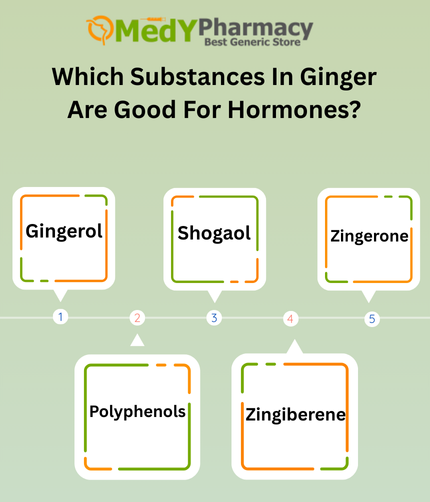
- Gingerol
This shares a chemical relationship with piperine and capsaicin, which are both recognised for their heat-producing and health-promoting properties.
Because of this, it may be useful in the treatment of long-term illnesses such as metabolic disorders, cardiovascular problems, and arthritis. Because of its antibacterial qualities, it may also help reduce the risk of some illnesses and boost the immune system.
Gingerol has been researched for its anti-inflammatory properties as well as its potential to improve blood sugar management, alleviate nausea, and improve digestive health. By enhancing insulin sensitivity and lowering stress-related cortisol levels, it may also promote hormonal balance.
- Shogaol
Studies indicate that shogaol may help reduce oxidative stress and inflammation, which might assist with ailments including diabetes, arthritis, and even neurodegenerative diseases. According to laboratory tests, it also possesses anti-cancer qualities, demonstrating the capacity to stop the development of certain cancer cells. Human research on these effects is ongoing, but the results are encouraging.
For those with PCOS, diabetes, or other hormone-related conditions, Rogaol may also have a favourable hormonal impact by enhancing insulin sensitivity and reducing cortisol. Dried ginger is a helpful form when aiming for these advantages because of its potent medicinal effects.
- Zingerone
This substance has been investigated for possible health advantages, such as anti-cancer, anti-diarrheal, and antibacterial properties. By lowering inflammation and scavenging the body’s dangerous free radicals, it can promote the general health of cells.
According to research on animals, zingerone may also help preserve vital organs like the kidneys and liver and enhance intestinal health.
By acting as an antioxidant, ginger may indirectly promote hormone health. In addition to helping shield hormone-producing glands from oxidative stress, it may increase men’s sperm quality and testosterone levels.
Although further human studies are required, zingerone is a molecule that shows promise in enhancing the medicinal benefits of ginger.
- Polyphenols
Ginger has a class of plant components called polyphenols that are naturally occurring and contribute to its health effects. Because of their anti-inflammatory and antioxidant qualities, these substances aid in shielding cells from the oxidative harm that free radicals may cause.
Those who suffer from diabetes or PCOS may benefit from these substances’ potential to enhance blood sugar management and insulin regulation.
In addition to supporting hormones, ginger’s polyphenols can strengthen the immune system, lower inflammation, and prevent heart disease. Due to its capacity to combat free radicals, this is a great complement to a diet that prioritises health since it helps prevent chronic illness and cell damage.
- Zingiberene
For ailments including arthritis, muscular soreness, and digestive distress, gingiberene may help lower inflammation in the body. Its antibacterial properties imply that it can promote intestinal health by lowering infections or dangerous microorganisms.
This further enhances ginger’s capacity to affect hormonal equilibrium. Indirectly supporting hormone-producing organs like the thyroid and adrenal glands, it may help control stress hormones like cortisol by lowering inflammation and oxidative stress. Zingiberene enhances the overall therapeutic profile of ginger, although further research is required.
Does Ginger Help With Menopausal Symptoms?
- Hot Flashes
- Balances Hormones
- Alleviates Mood Swings
- Supports Digestion
- Improves Bone Health
- Weight Management
You may include ginger powder, pills, or fresh ginger tea in your diet to help control menopausal symptoms. When paired with other lifestyle modifications like exercise and a healthy diet, many women find that taking ginger tea daily or incorporating ginger into their meals can provide relief over time.
While this may help alleviate certain menopausal symptoms, it’s crucial to speak with a healthcare professional to create a thorough menopausal management plan.
During this stage of life, this can enhance general well-being in conjunction with other treatments, such as hormone therapy and lifestyle modifications.
To manage certain menopausal symptoms, this may be useful. It may not be a panacea, but it does have qualities that can help ease some of the discomforts of menopause and perimenopause, including mood swings, weight gain, vaginal dryness, and hot flashes.
This improves mood by lowering cortisol levels, which are the body’s main stress hormone. Menopause-related mood swings and irritability may be easier to control by reducing stress and encouraging relaxation.
Does Ginger Increase Sensitivity to Insulin?
By promoting glucose metabolism, lowering inflammation, and maybe helping with weight control, this may enhance insulin sensitivity. Along with medical guidance and therapy, it should be viewed as a component of a more comprehensive strategy for controlling type 2 diabetes or insulin resistance.
It’s crucial to remember that although this can help with insulin sensitivity, it works best when paired with other healthy lifestyle choices like eating a balanced diet and exercising frequently.
Given that being overweight is a major risk factor for insulin resistance, ginger may help control weight, which in turn may enhance insulin sensitivity. This has been demonstrated to increase insulin sensitivity by promoting fat burning and decreasing belly fat.
The pancreas, which produces insulin, may work better as a result, which might enhance glucose metabolism. By doing this, blood sugar levels may be kept more consistent and post-meal surges avoided.
Does the Use of Ginger Impact Cortisol Levels?
By enhancing blood sugar balance, lowering inflammation, encouraging relaxation, and bolstering the body’s natural stress response, this seems to help reduce cortisol levels. The physiological effects of stress, especially chronic cortisol increase, can be effectively managed with this natural therapy, even if it might not completely eradicate stress.
Frequent usage may help your body manage stress better and keep cortisol levels more balanced, particularly during periods of elevated stress.
For instance, one study discovered that while people were experiencing physical stress, like that caused by exercise, ginger extract lowered their cortisol levels.
It can encourage calmness and lessen tension and anxiety, which may result in decreased cortisol levels. According to studies, eating ginger may help control the body’s stress response by balancing cortisol levels and preventing an uncontrollable high rise.
Like sildenafil, they can improve your body’s circulation, which can help patients with erectile dysfunction or other related conditions.
Ginger Regarding Sexual Well-being
You may drink fresh ginger tea, add it to smoothies, or take supplements to include ginger in your sexual health regimen. Over time, regular use may help improve circulation, libido, and stress levels—all of which are beneficial for sexual well-being.
Though it’s only one component of the whole picture, this supplement may be helpful for sexual health. A balanced diet, regular exercise, and stress reduction are all important components of a healthy lifestyle that contribute to sexual wellbeing.
Although there is currently little data on ginger’s direct effects on sexual health, a number of its characteristics make it a promising ally for enhancing sexual function and reproductive health in general.
- Blood Circulation
Due to its ability to enhance blood flow, this is well recognised for its circulatory advantages. Improved circulation guarantees that the reproductive organs receive a sufficient amount of blood, which can improve sexual excitement and function. For both men and women, this can be especially advantageous since adequate circulation promotes sexual responsiveness and erectile performance.
- Boosts Libido
According to some research, men’s testosterone levels may rise as a result. Given that testosterone is essential for libido and sexual drive, ginger’s ability to promote its synthesis may enhance sexual desire. In particular, during menopause or periods of hormonal imbalance, it may assist women in maintaining a healthy sexual urge by regulating oestrogen levels.
- Stress and Anxiety
Sexual well-being may be indirectly improved by this capacity to lower cortisol levels. This may help reduce anxiety and create a more intimate atmosphere by reducing tension and encouraging relaxation.
- Enhances Fertility
Ginger has been researched for its possible impact on fertility in both men and women. This may help increase fertility in males by improving sperm quality, motility, and count. This can help women conceive more healthily by balancing hormones and reducing inflammation.
- Anti-inflammatory
Sexual health is supported by the strong anti-inflammatory and antioxidant qualities. Although oxidative stress and inflammation can hinder reproductive function, they can serve as a protective barrier against cellular damage, hence supporting improved sexual performance and health.
Does ginger have to be taken daily?
While daily usage is not necessary for everyone, it can yield more consistent benefits, particularly for chronic conditions, including blood sugar regulation, inflammation, and digestive health.
Whether you take ginger often or infrequently depends on your health objectives, but for long-term well-being, moderate, regular use is usually the best course of action.
Regularly drinking ginger tea or including ginger in your meals, for instance, may give your body ongoing assistance.
In these situations, you may use ginger more often while you’re experiencing discomfort and less frequently when you’re not. Larger amounts, such as those found in ginger tea or pills, can offer instant relief.
Maintaining its beneficial effects on glucose metabolism can be achieved with constant ingestion, although this may not yield rapid improvements for chronic diseases.
While most individuals find this to be harmless, ingesting high doses over time may produce gastrointestinal problems, including diarrhoea or heartburn. Starting with modest dosages and modifying according to your body’s reaction is crucial.
Does Ginger Help Boost Men’s Hormones?
The male hormone testosterone is essential since it affects mood, bone density, muscular mass, and desire. Several research studies indicate that ginger could aid in raising testosterone levels.
Serum Testosterone levels significantly increased in one study after males took ginger pills for a few weeks. The testicles are in charge of creating testosterone; thus, this might help them work better.
The combination of ginger’s ability to increase blood circulation and its antioxidant action may promote reproductive health and fertility.
Indirectly, ginger may promote better testosterone levels and hormone balance by reducing cortisol. Lower cortisol levels can also aid in stress management, which can improve sexual health and desire.
This might improve men’s general sexual health, fertility, and testosterone levels. A healthy lifestyle can benefit from its potential to increase sperm quality, decrease cortisol, and improve blood circulation.
As with any supplement, though, it’s crucial to get individualised advice from a healthcare professional, particularly when dealing with hormonal issues.
Recipes for Ginger
You may try these five easy and healthful ginger-based dishes at home if you want to improve your digestive system, strengthen your immune system, or find a natural approach to increase your energy and lower inflammation:
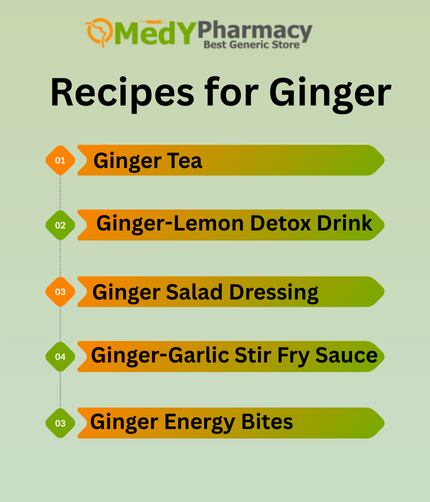
- Ginger Tea
Made from fresh ginger root, ginger tea is a straightforward and calming beverage with many health advantages. It has a warm, spicy taste and is frequently used to improve immunity, ease nausea, and aid with digestion.
Slice or grate 1 to 2 inches of fresh ginger, then boil it in 2 cups of water for 10 to 15 minutes to prepare ginger tea. Honey and lemon juice can be added for taste and additional health advantages. Pour the tea through a strainer.
This tea is particularly beneficial for promoting better digestion and reducing bloating in the morning or after meals. Because of its inherent antiviral and antibacterial qualities, this can also be soothing when you have a cold or the flu.
- Ginger-Lemon Detox Drink
Known for its digestive and cleaning properties, the ginger-lemon detox drink is a revitalising and health-promoting beverage. Fresh ginger and lemon juice are a common morning beverage for detox regimens because they promote liver function, aid with digestion, and lessen bloating.
In a glass of warm water, combine the juice of half a lemon with 1 teaspoon of grated ginger. If desired, you may add a spoonful of honey to make it sweeter. For optimal results, this beverage should be taken in the morning on an empty stomach.
The lemon provides vitamin C and assists in the removal of impurities, while the ginger increases metabolism and reduces inflammation. When combined, they can enhance hydration, boost immunity, and have a mild cleaning impact.
- Ginger Salad Dressing
A tasty and spicy condiment, ginger salad dressing enhances the flavour and health benefits of your salads. When made with fresh or ground ginger, it adds a warm, spicy taste that goes great with vegetables, leafy greens, and even grilled meats like tofu or chicken.
Add 2 teaspoons of grated fresh ginger, 3 tablespoons of olive oil, 2 tablespoons of rice vinegar or lemon juice, 1 tablespoon of soy sauce, and 1 teaspoon of honey to make a basic ginger dressing. To get a smoother texture, mix or whisk until smooth.
This dressing has added nutritional benefits in addition to improving flavour. While olive oil offers heart-healthy lipids and vinegar helps control blood sugar, ginger aids with digestion and lowers inflammation.
- Ginger-Garlic Stir Fry Sauce
Strong and fragrant, ginger-garlic stir-fry sauce enhances the flavour of meat, tofu, and vegetable dishes.
Garlic improves digestion and lowers inflammation, and it also boosts heart health and the immune system. This sauce not only tastes better, but it also is healthier. A nutty scent and healthful fats are added by the sesame oil.
Use the sauce right away over meats, noodles, or stir-fried veggies. A basic food may be quickly transformed into something tasty, filling, and nutritious using this method.
- Ginger Energy Bites
For a fast energy boost, try these nutritious, no-bake ginger energy treats. They are made with healthy components like crushed ginger, oats, and nut butter. They are naturally sweet and somewhat spicy, making them excellent for inflammation reduction and digestion.
After everything has been incorporated, form the dough into little balls and refrigerate for at least half an hour. They get firm and are convenient to grab for a nutritious snack at any time of day.
These bites are a tasty, portable way to boost blood sugar balance, energy levels, and immunological function.
How Frequently Should One Take Ginger to Improve Hormones?
Your unique demands and health objectives will determine how frequently you should do this, but it can help maintain hormonal balance regularly. When it comes to general hormonal support, such as enhancing insulin sensitivity, lowering cortisol, or promoting reproductive health, most people find that a small to moderate daily dosage is both safe and helpful.
Women who are experiencing menstrual discomfort, PMS, or menopausal symptoms might benefit from taking ginger every day during the symptomatic period or even all month long. Frequent use may help men manage stress, increase testosterone levels, and improve fertility.
In conjunction with a healthy diet, consistent exercise, and adequate sleep—all of which have an impact on hormone health—this is particularly beneficial.
In addition to enhancing nutritional absorption and digestion, taking it with meals can help maintain hormonal balance.
The best course of action, like with any natural medicine, is to start with a small dose, monitor your body’s reaction, and get medical advice if you use medication or have certain hormonal issues.
As a result, you will have a stronger desire for enjoyable sexual activity with your spouse when you continuously take Tadafem.
During pregnancy, is ginger safe?
When taken sparingly during pregnancy, this is usually safe. During the first trimester, morning sickness, nausea, and moderate digestive problems are frequent and can be alleviated with treatment. This has been shown in several studies to be an excellent natural treatment for nausea associated with pregnancy.
This helps with digestion by relaxing the stomach. Additionally, it contains modest anti-inflammatory and anti-nausea qualities, making it perfect for non-pharmacological treatment of pregnancy-related pain.
On the other hand, taking a lot of ginger, especially as a supplement, may have negative effects on uterine contractions or blood coagulation. Consult your doctor before consuming ginger regularly if you have a history of bleeding problems or miscarriages or are taking blood thinners. When using Ginger regularly along with Zudena 100 mg tablet.
During pregnancy, this is safe and helpful in moderation, especially for nausea management. It’s recommended to get individualised counsel from your healthcare physician before using any supplements or herbal remedies.
Because of its capacity to lower stress and inflammation while promoting metabolic activity, it is an effective natural ally in preserving hormonal equilibrium. It is ideal when combined with a nutritious diet and way of life.
This might put these people at risk for bleeding, which could be dangerous. Go to our Medypharmacy website.







